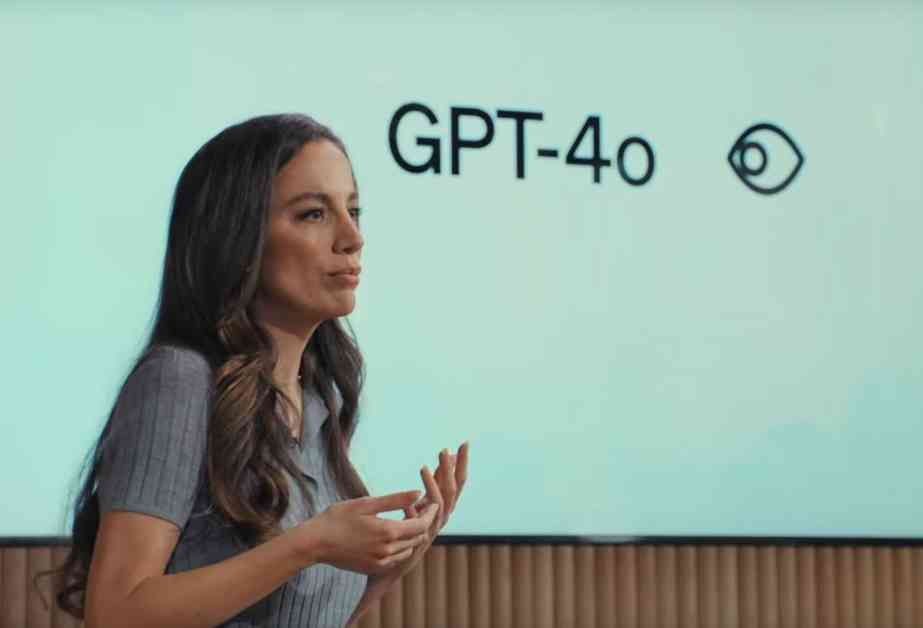OpenAI’s Chief Technology Officer (CTO), Mira Murati, recently announced her departure from the company after more than six years of service. In a heartfelt post on social media, Murati expressed her decision to step away from OpenAI to embark on a new journey of exploration. Despite the challenges of leaving a place she cherished, Murati felt that the timing was right for her to move on. Reflecting on her time at OpenAI, she described her experience with the team as an extraordinary privilege.
The news of Murati’s departure was met with gratitude and appreciation from OpenAI’s CEO, Sam Altman, who took to social media to thank her for her contributions to the company. Altman expressed his admiration for Murati’s role in helping build and accomplish the organization’s goals, highlighting her unwavering support and dedication during challenging times. The sentiment of gratitude towards Murati was echoed by the OpenAI team and the broader community.
The announcement of Murati’s departure comes just a week before OpenAI’s annual developer conference, DevDay, adding a bittersweet note to the upcoming event. The timing of her exit raises questions about the future leadership of the company and the impact it may have on ongoing projects and initiatives. Murati’s departure also marks a significant moment in the evolution of OpenAI, as the company navigates through a period of transition and change.
Murati’s tenure at OpenAI was marked by notable achievements and contributions to the field of artificial intelligence. Joining the company in 2018 as the VP of applied AI and partnerships, she later assumed the role of CTO in 2022. During her time at OpenAI, Murati led the development of innovative AI-powered projects such as ChatGPT, DALL-E, and Codex, which have garnered widespread recognition in the tech industry. Her leadership and expertise have been instrumental in shaping the direction of OpenAI’s research and technological advancements.
Prior to her role at OpenAI, Murati held positions at renowned companies such as Tesla, where she served as a senior product manager for the Model X. Her experience in the tech industry, coupled with her background in mechanical engineering from Dartmouth College, equipped her with the skills and knowledge to drive innovation and progress in the field of AI. Murati’s diverse professional background and passion for technology have been key factors in her success at OpenAI and beyond.
Despite her accomplishments, Murati’s time at OpenAI was not without its controversies. Known for making bold and sometimes controversial statements about the future of AI, she once claimed that OpenAI’s technology could achieve “Ph.D.-level” intelligence. Additionally, her views on the impact of AI on creative professions have sparked debate and discussion within the tech community. Murati’s willingness to push boundaries and challenge conventional thinking has been both a strength and a source of contention throughout her career.
In the wake of Murati’s departure, OpenAI faces a period of transition and restructuring as it seeks to redefine its leadership and strategic direction. The company’s recent pursuit of a funding round valued at over $150 billion underscores the importance of securing financial support to sustain its operations and research efforts. With potential investors like Microsoft, Nvidia, Apple, and Thrive Capital in talks to invest, OpenAI’s future trajectory hinges on its ability to secure funding and continue its mission of advancing AI technology.
As OpenAI prepares for a new chapter in its evolution, the departure of key executives like Mira Murati underscores the dynamic nature of the tech industry and the challenges of leading a cutting-edge organization. The legacy of Murati’s contributions to OpenAI will undoubtedly leave a lasting impact on the company’s culture, values, and technological advancements. As the company navigates through a period of change, the spirit of innovation and collaboration that Murati embodied will continue to guide OpenAI on its path towards shaping the future of artificial intelligence.











